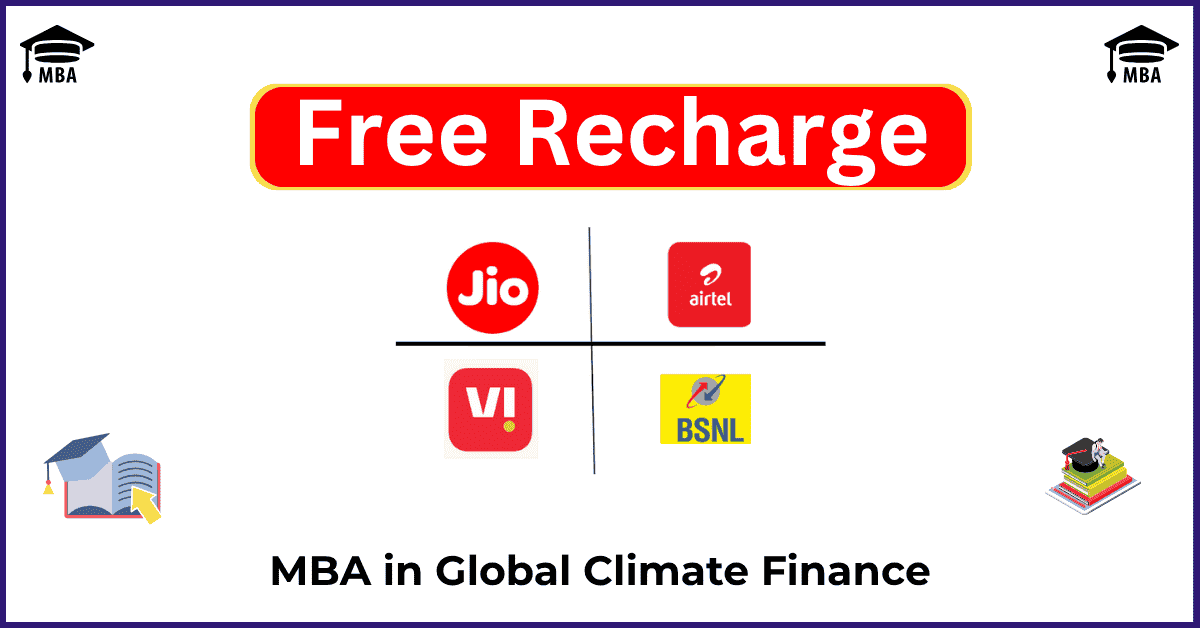The world is at a turning point. With rising global temperatures, worsening climate disasters, and an urgent transition to net-zero economies, climate finance has emerged as one of the most powerful levers for change. Businesses, governments, and international institutions are investing billions into green projects—and they need leaders who understand both finance and sustainability.
This is where the MBA in Global Climate Finance comes in. It’s not just another specialization; it’s a career path at the intersection of economic growth, environmental policy, and social responsibility. Let’s explore how this specialized MBA is shaping the next generation of financial and policy leaders.
1. MBA in Climate Finance
An MBA in Climate Finance focuses on how financial systems can address global warming and support a low-carbon economy. Students learn about climate investment models, risk management, carbon pricing mechanisms, and green project valuation.
Key Learning Areas:
- Climate risk assessment and sustainability metrics
- Low-carbon investment strategies
- Corporate sustainability reporting
- Financing climate adaptation and mitigation
Graduates are equipped to advise governments, corporations, and NGOs on sustainable financial strategies.
2. Global Green Finance MBA
A Global Green Finance MBA prepares professionals to manage large-scale green funds and investments that promote renewable energy and environmental conservation.
This program emphasizes ethical investing, sustainable economic development, and international environmental policies. Students also explore case studies from institutions like the World Bank’s Climate Investment Funds and Green Climate Fund (GCF).
3. Sustainable Finance and Investment
This domain teaches how capital markets can be mobilized for environmental goals. Students learn to align investment portfolios with UN Sustainable Development Goals (SDGs) and Paris Agreement targets.
Course Highlights:
- Green investment valuation
- Sustainable banking practices
- ESG portfolio management
- Corporate governance and environmental compliance
Such knowledge is critical for professionals working in ESG funds, climate startups, and global development banks.
4. Carbon Market Management MBA
With global carbon pricing reaching new heights, Carbon Market Management has become a core MBA concentration.
This area covers:
- Carbon trading systems (EU ETS, India’s Carbon Market Initiative)
- Carbon credit verification
- Climate offsets and renewable certificates
Graduates can work with governments, corporations, or consulting firms to design and manage carbon reduction strategies.
5. ESG and Climate Risk Analysis
ESG (Environmental, Social, and Governance) frameworks are reshaping corporate finance. In this module, students learn how to integrate ESG data into credit ratings, investment analysis, and corporate risk management.
Leading firms like BlackRock and Goldman Sachs now rely on ESG analysts to evaluate climate-related financial risks. With this specialization, students can pursue roles such as ESG Analyst, Sustainability Strategist, or Risk Manager.
6. Renewable Energy Finance MBA
This specialization focuses on financing solar, wind, hydro, and bioenergy projects.
Learning Scope:
- Renewable project valuation
- Public-private partnership models
- Power purchase agreements (PPAs)
- Energy transition finance
Global demand for renewable energy finance experts is booming—especially in India, Europe, and the U.S., where nations are targeting net-zero by 2050.
7. Climate Policy and Economics
An MBA in Climate Policy and Economics combines macroeconomic theory with environmental regulation. Students learn to assess how fiscal and trade policies can support decarbonization.
For example, understanding carbon taxes, emission trading schemes, and green subsidies helps future policymakers and economists craft solutions that align profitability with sustainability.
8. Sustainable Infrastructure Finance
Infrastructure contributes nearly 70% of global carbon emissions. Thus, Sustainable Infrastructure Finance plays a key role in transforming how cities grow.
Topics include:
- Smart cities and green architecture
- Financing low-carbon transport systems
- Green building certifications and ESG bonds
Graduates may work with organizations like Asian Development Bank or World Bank on billion-dollar climate projects.
9. Impact Investing and Climate Funds
Impact investing focuses on measurable environmental and social outcomes alongside financial returns.
In this field, students explore:
- Climate-focused venture capital
- Blended finance for green startups
- Measuring impact through ESG indicators
Top employers include UNDP, IFC, Acumen Fund, and Rockefeller Foundation.
10. Climate Change Mitigation Strategies
This module examines strategies for reducing greenhouse gas emissions through technology, finance, and policy.
Topics include:
- Carbon capture and storage (CCS)
- Climate adaptation financing
- Green innovation funding
Professionals with expertise in mitigation finance are highly valued in consulting firms and international NGOs.
11. International Climate Finance Institutions
The Global Climate Finance ecosystem involves organizations like:
- Green Climate Fund (GCF)
- Global Environment Facility (GEF)
- International Finance Corporation (IFC)
- World Bank’s Climate Investment Funds
MBA students gain insights into how these bodies channel billions of dollars into green energy, adaptation, and resilience projects worldwide.
12. Green Bonds and Sustainable Capital Markets
Green bonds have become a cornerstone of climate finance. These bonds fund renewable projects, clean transportation, and energy-efficient infrastructure.
Key Topics:
- Structuring green debt instruments
- Climate risk disclosure (TCFD framework)
- Global trends in sustainable capital markets
By mastering green bond markets, graduates can lead sustainable finance teams in banks, governments, and corporates.
13. Environmental Financial Management
This area integrates environmental science with corporate finance. Students learn to quantify the environmental costs of business activities and design green accounting systems.
Professionals with this expertise help companies transition to circular economy models while maintaining profitability.
14. MBA Career in Climate and Sustainability
The career scope after an MBA in Global Climate Finance is vast. Roles include:
- Climate Finance Analyst
- ESG Investment Manager
- Sustainability Consultant
- Renewable Energy Project Manager
- Policy Advisor (UN, World Bank, NITI Aayog, etc.)
Average Salaries:
- India: ₹10–25 LPA
- USA/Europe: $90,000–$150,000 per year
Demand for sustainability-oriented MBAs is expected to grow 30% annually through 2030.
15. Top Universities for MBA in Global Climate Finance
Here are some top institutions offering specialized programs in climate finance and sustainability:
- Yale School of Management – MBA in Sustainability
- INSEAD – Global Executive MBA with Climate Strategy
- University of Oxford – MBA in Climate, Environment & Sustainability
- IIM Bangalore – MBA in Sustainable Business Practices
- Columbia Business School – ESG & Climate Finance Track
- ESCP Europe – MSc in Energy Management & Climate Finance
Students should also look for dual degree programs combining finance and environmental policy for greater career versatility.
Case Studies: Real-World Climate Finance Success
- Tesla and Green Bonds: Tesla raised billions through green bonds to fund Gigafactories and renewable battery production.
- India’s Sovereign Green Bonds (2023): India launched its first green bond issuance, attracting massive investor interest for clean energy expansion.
- World Bank’s Climate Investment Funds: Supporting projects in Africa and Asia, these funds have financed renewable energy worth over $8 billion.
These examples prove that climate finance is now mainstream—and skilled MBAs are needed to lead it.
FAQs on MBA in Global Climate Finance
Q1. What is Global Climate Finance?
Global Climate Finance refers to financial flows aimed at reducing carbon emissions and supporting sustainable development through green investments.
Q2. Who should pursue an MBA in Climate Finance?
Finance professionals, environmental scientists, economists, and sustainability enthusiasts who want to work in the green economy.
Q3. What is the average duration of the program?
Most MBAs in Climate Finance last 1–2 years, depending on the university and curriculum structure.
Q4. Is it a good career option in India?
Yes, with India’s focus on renewable energy and ESG compliance, climate finance professionals are in huge demand.
Q5. What are the job opportunities abroad?
Graduates can work in global organizations like UNDP, World Bank, OECD, or private ESG investment firms.
Conclusion: Building a Sustainable Financial Future
An MBA in Global Climate Finance isn’t just about profit—it’s about purpose. It prepares future leaders to steer the world toward sustainable prosperity, balancing economic growth with ecological balance.
As governments and corporations transition to net-zero, professionals who understand both finance and climate change will shape the next era of global economic transformation.
If you’re passionate about the planet and finance, this MBA could be your gateway to a meaningful, high-impact career.






